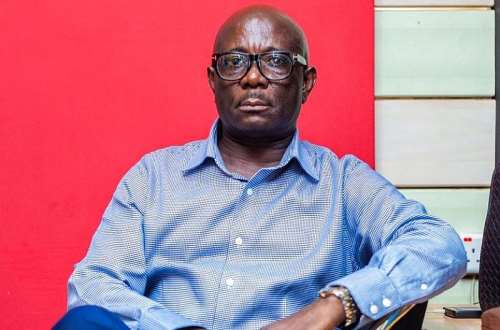Akwasi Addai Odike, the founder and Presidential Candidate of the United Front Party (UFP) has added his voice to calls for the amendment of the 1992 Constitution, saying several provisions of the document have outlived their usefulness.
He argues the constitution gives too much power to the Executive which makes the president more powerful, affecting the checks and balances within the arms of government.
Mr. Odike, speaking with JB on Maakye Monday, January 08, 2024, indicated that the constitution in its current state does not promote development, asserting the state is living in the past.
“Our constitution doesn’t promote rule of law because it does selective justice. Aisha Huang for instance was being emboldened by the Executive, the reason we suffered before getting her prosecuted.
“We are still living in our past. The constitution is static, and development always suffers when there is transfer of power because every government comes with its own manifesto,” he stated.
The renowned businessman indicated that it was time the country slashed the executive powers to create some leverage where the president’s appointing authority would be reduced to empower the respective institutions.
“Our policy is that the executive powers are too much so we will strip the appointment authority to the departments to be autonomous. Out of the 19 cabinet ministers, the president can appoint four and the rest would be appointed by the institutions,” he added.
The appointment of majority of ministers from Parliament, according to the politician, has gravely affected democracy, a call which has recently been reiterated by private legal practitioner, Martin Luther Kpebu.
He said the Article 78 which contains that provision, has compromised, to a certain extent, the role of the Legislature in checking the Executive.
To win the favour of the President for appointment, the renowned lawyer noted that Parliamentarians have had to kotow to the policies of the Executive irrespective of how it fosters or otherwise, the wellbeing of the citizenry.
The Article 78, has it that;
(1) Ministers of State shall be appointed by the President with the prior approval of Parliament from among members of Parliament or persons qualified to be elected as members of Parliament, except that the majority of Ministers of State shall be appointed from among members of Parliament.
This, is what Martin Kpebu wants taken out of the constitution due to its ripple effect on the legislative checks and balances.
He was speaking with Alfred Ocansey on the KeyPoints Saturday, December 30, 2023, on TV3, whilst commenting on some experienced lawmakers who would not be returning to Parliament in 2025.
“The law that mandates the President to appoint a majority of ministers of state from Parliament must go,” he said.
Eighteen (18) Members of Parliament (MPs) from the Majority Caucus of the ruling New Patriotic Party (NPP) have signalled that they will not be seeking reelection in the next parliamentary elections in 2024.
This voluntary exit has sparked significant speculation and discussions about the future trajectory of the NPP in the coming years.
Among the noteworthy MPs opting not to seek reelection are prominent figures such as Majority Leader, Osei Kyei-Mensah-Bonsu (Suame), First Deputy Speaker, Joe Osei Owusu (Bekwai), Samuel Atta Akyea (Abuakwa South), Joe Ghartey (Essikado Ketan), and Ken Ohene Agyapong (Assin Central). Their decision undoubtedly leaves a void in the party’s leadership and parliamentary representation.
Other MPs who have decided to step down include Dan Kwaku Botwe (Okere), Kwasi Amoako-Atta (Atiwa West), Dr. Kwaku Afriyie (Sefwi Wiaso), and Emmanuel Marfo (Oforikrom).
Additionally, Benito Owusu-Bio (Atwima Nwabiagya), Carlos Ahenkora (Tema West), Nana Kwasi Adjei Boateng (New Juabeng North), William Owuraku Aidoo (Afigya Kwabre South), Johnson Adu (Ahafo Ano South West), Francis Manu-Adabor (Ahafo Ano South-East), Suleman Sanid (Ahafo Ano North), Kojo Kum (Ahanta West), and Francisca Oteng (Kwabre East) are among those opting not to seek reelection.
The reasons behind their decision remain unclear, with speculation ranging from potential retirements from politics to pursuing alternative professional opportunities or taking a break from the demanding nature of parliamentary life.
Internal dynamics within the NPP or personal considerations may also have influenced their decision-making process.
READ ALSO: Odike cites excessive Presidential powers as cause of Ghana’s underdevelopment













